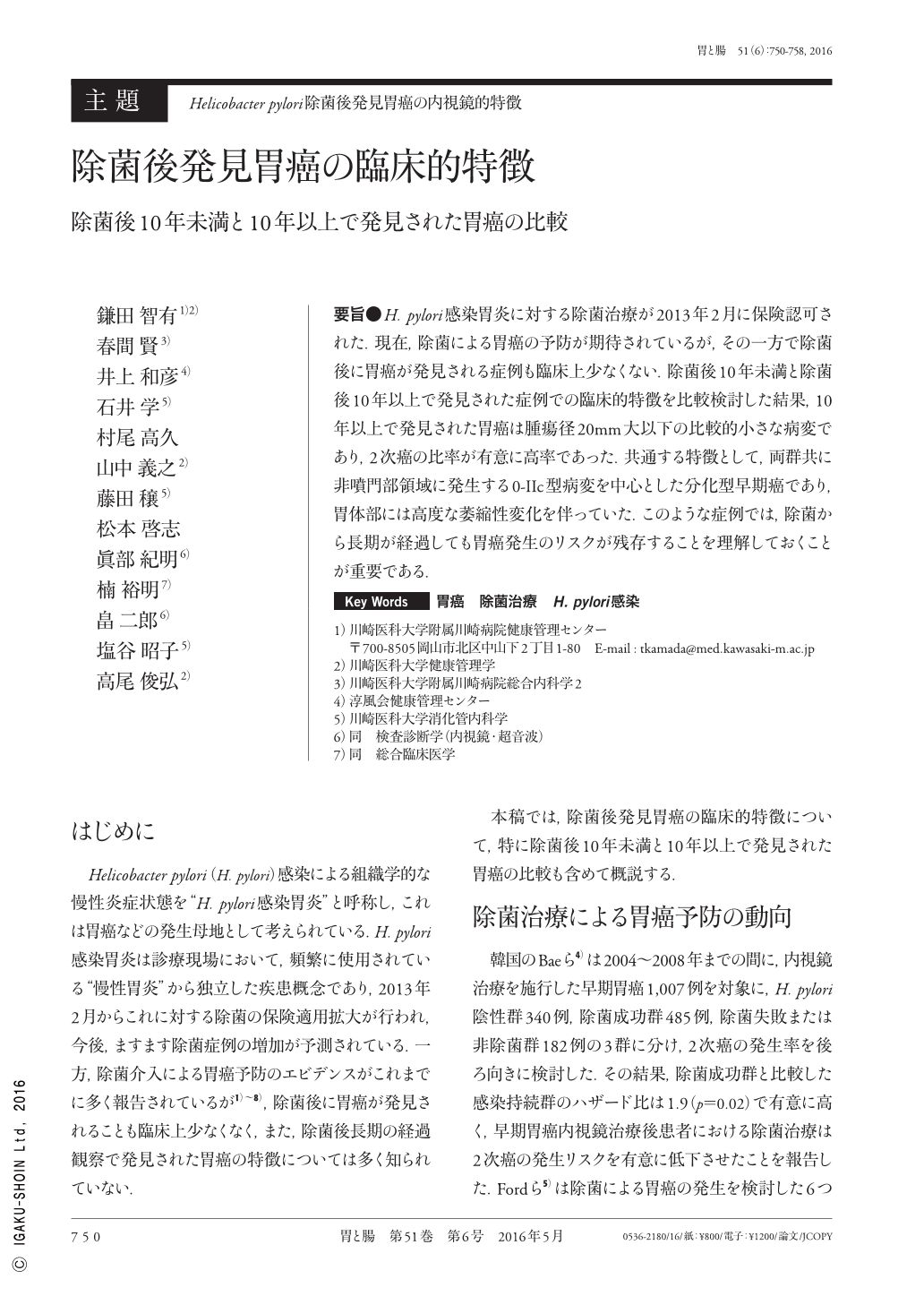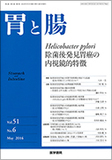Japanese
English
- 有料閲覧
- Abstract 文献概要
- 1ページ目 Look Inside
- 参考文献 Reference
- サイト内被引用 Cited by
要旨●H. pylori感染胃炎に対する除菌治療が2013年2月に保険認可された.現在,除菌による胃癌の予防が期待されているが,その一方で除菌後に胃癌が発見される症例も臨床上少なくない.除菌後10年未満と除菌後10年以上で発見された症例での臨床的特徴を比較検討した結果,10年以上で発見された胃癌は腫瘍径20mm大以下の比較的小さな病変であり,2次癌の比率が有意に高率であった.共通する特徴として,両群共に非噴門部領域に発生する0-IIc型病変を中心とした分化型早期癌であり,胃体部には高度な萎縮性変化を伴っていた.このような症例では,除菌から長期が経過しても胃癌発生のリスクが残存することを理解しておくことが重要である.
H. pylori eradication has the potential to prevent the development of gastric cancer. However, gastric cancers still occur after successful H. pylori eradication. We investigated the clinical features of patients who developed gastric cancer after H. pylori eradication. The patients were divided into two groups, short- and long-term groups, based on the time of gastric cancer onset. In the long-term group, tumor diameter was <20mm, and the rate of secondary cancer was significantly higher than in the short-term group. The two groups were both characterized as early non-cardiac cancers of the intestinal type with mild depression and severe atrophic gastritis of the corpus. Our study revealed that careful follow-up endoscopic examination for possible gastric cancer is necessary even after H. pylori eradication in patients with severe baseline mucosal atrophy in the corpus.

Copyright © 2016, Igaku-Shoin Ltd. All rights reserved.


